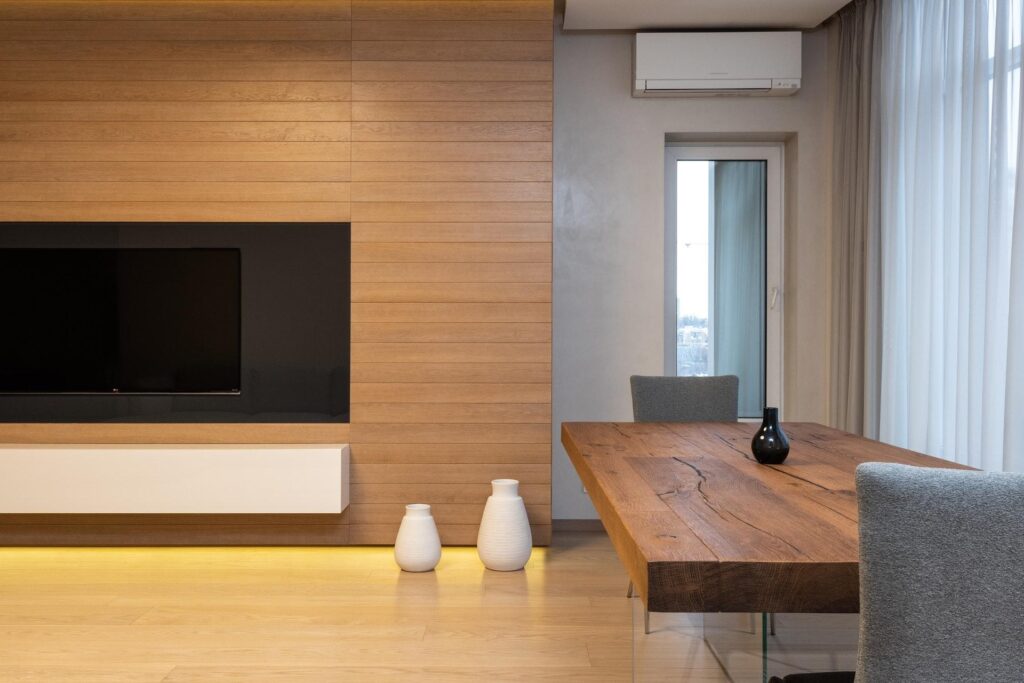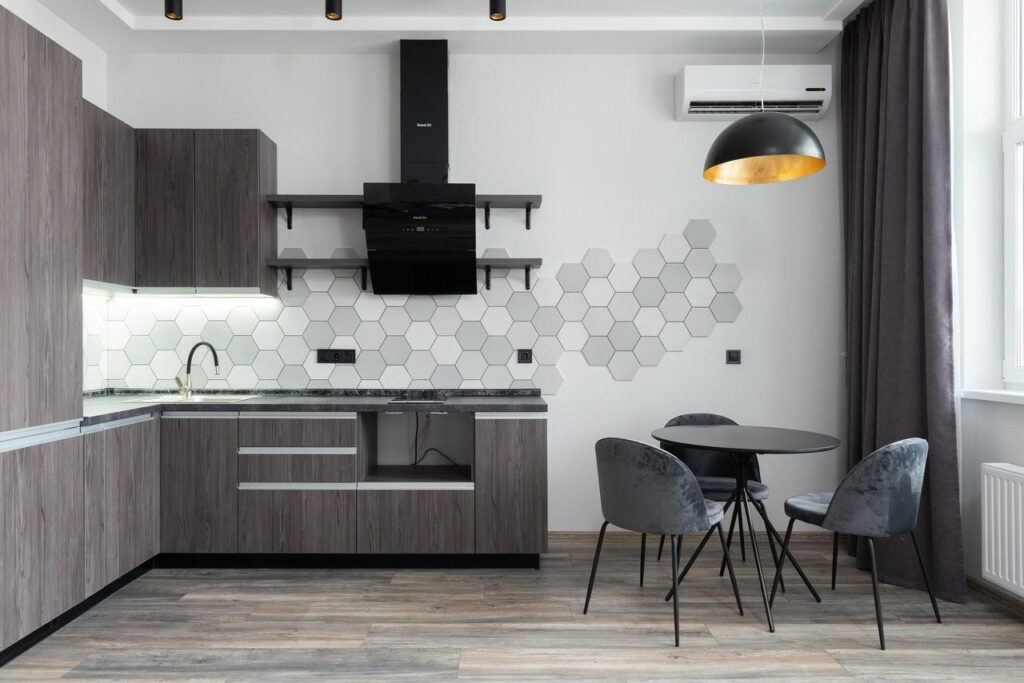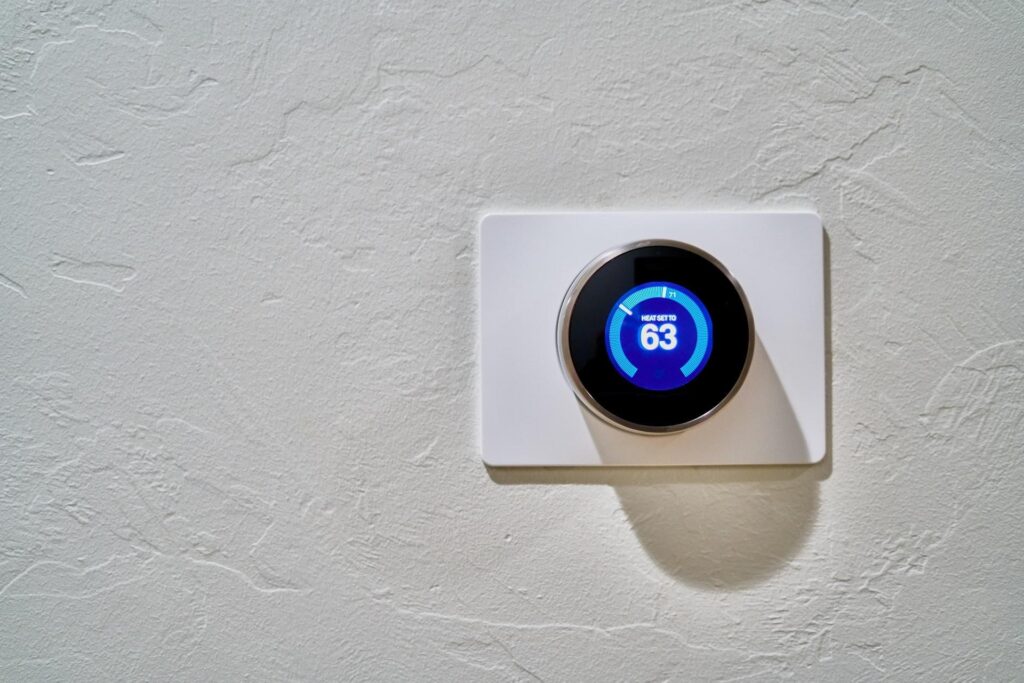Heating and cooling in your home can account for 20-50 per cent of your home’s energy bill depending on your climate. Short of skipping out on using your air conditioner, the best way to cut down costs is by ensuring the system you have installed is just right for your home.
The best type of air conditioner will meet your home’s heating and cooling demands but won’t go over the top. There’s a lot of factors to consider when picking out the best air conditioner. We’ve compiled a simple guide of all the things you need to consider when picking out a new AC, so you can save money in the long term.

Gas Vs. Electric Air Conditioners
The neverending debate – gas vs. electric energy – which is best? If you’re looking at running costs alone, gas is cheaper than electricity in most cases. There’s more to picking the right energy source than just what has the most cost-effective running costs though.
Firstly, gas can only be used to heat your home. So if you also need cooling, you’ll need to purchase and install a separate system to do this.
Many air conditioners powered by electricity are reverse cycle, meaning they can both heat and cool. You can control your home’s climate with just one system.
Does your home have a gas connection? If not, you’ll need to consider the extra costs of running gas lines. More and more we’re moving towards an all-electric home, and as our renewable energy improves this is only becoming more and more likely.
What Types of Air Conditioners Suit Your Home?

There are many different types of air conditioners on the market now. This means you’ll be sure to find one that suits your home well, but also means you now have the difficult decision of going through all the types and their pros and cons.
Split System Air Conditioner
Split system air conditioners are one of the most popular heating and cooling units on the market. As the name suggests, these systems are made of two units that are split apart – the outdoor and indoor units.
For ease of installation, these systems are typically mounted on an exterior wall. They’re great for heating and cooling single rooms and come in various sizes to suit different sized rooms. Depending on what brand, make and model you opt for, split systems can be very affordable upfront and in terms of installation too.
A split system air conditioner can also be used to improve your home’s air quality with their filters. This is great news for those who suffer from allergies or asthma.
If you want to just heat/cool one room, then a split system is a g
Pros: Simple installation, different sizes to suit different sized rooms, less costly upfront, heats and cools, filters the air.
Cons: Only heats/cools small spaces, large wall-mounted units in your room.
Multi-Head Split System
If you’re looking to heat/cool only a few rooms in your house, then multi-head split systems might be the way to go. These are two or more indoor split system units, all connected to one outdoor unit.
These come with all the same features as a typical split system, but come with the added benefit of being able to individually control each unit! You can often vary the indoor units too, so you can choose the perfect sized unit for each room.
Installation costs for multi split systems tend to be less than if you were to install the same number of individual split systems too.
Pros: Heat and cool multiple rooms, different sized indoor units to suit room size, only one outdoor unit, independently control each indoor unit, more cost-effective than installing individual split systems.
Cons: Requires ducts to be run between each indoor unit to the outdoor unit, all units must be set to the same heat/cool mode, a problem with the outdoor unit means all indoor units will stop working.
Ducted Air Conditioner
Whole-home heating and cooling can be at your fingertips with ducted air conditioning. Also known as central heating, these units are typically placed inside your roof space and the air is directed across your house via discreet ducts and vents on your ceiling.
There are a few different ways your home can have a ducted air conditioner. First, there’s reverse cycle ducted heating and cooling which is powered entirely by electricity. Alternatively, you can have ducted gas heating with add-on cooling which uses a combination of gas and electricity.
Most ducted air conditioners come with zoning features now too. Zones allow you to section off parts of your home for heating/cooling so you’re not wasting energy on rooms you don’t need to.
Pros: Heat and cool your whole home with one central unit, discreet ducts that don’t impede your home’s style, quiet operation, available with both gas and electricity, zoning allows you to only heat/cool the rooms you want to.
Cons: Costly upfront to install, requires adequate space in your roof, not effective for heating/cooling one room.
Window/Wall Air Conditioner
If you’re renting or simply don’t want to mount an air conditioning system to your wall, then a window/wall air conditioner might be a good option for you. Window air conditioners are a single box that can be installed in your window space and work in a similar way to split systems.
They are significantly easier to install, however, as they don’t need to be mounted to a wall. Depending on the size of your unit, it might be as simple as plugging the unit into a powerpoint too!
They aren’t able to heat/cool a room as effectively as a split system though and generally are less energy efficient.
Pros: Simple and unintrusive installation, less costly upfront, heats and cools.
Cons: Higher running costs than comparable air conditioning systems.
Portable Air Conditioner
Can’t commit to any one type of air conditioner in your home or aren’t in the position to install a built-in system? Portable air conditioners take the stress out of choosing a long-term heating and cooling system and have the added bonus that they can be moved around your home as needed.
They aren’t as efficient as other air conditioners, meaning you’ll be paying more in the long term for running costs. Typically, you’ll need to buy separate portable air conditioners for heating and cooling too.
Pros: Can be moved around your home, low upfront cost, no installation required.
Cons: Less efficient, higher running costs, need separate systems for heating and cooling.
Get the Right Size Air Conditioner
It’s crucial that you get the right-sized air conditioner to maximise efficiency and minimise your running costs. Bigger is not always better, and in fact, can burn a hole in your wallet if you pick the wrong type of air conditioning for your home. Too small and your power usage will also increase, you will wear down the unit faster, and.
There are a number of factors you need to consider when picking out the right size:
- room size – the greater the volume of the room, the larger a unit you will need.
- how well insulated your home is – 25-35 percent of heat energy loss is through our ceiling so insulation here can go a long way in improving efficiency.
- location and climate – more extreme climates will require more energy to change your home’s temperature to a comfortable one.
- orientation of the area being heated/cooled – the sun’s position means different areas of your home will be warmer/colder than others.
Consumer advocate group, CHOICE, recommend the following air conditioning unit capacities based on your room size alone:
- small rooms up to 20m2 – 2-2.5kW
- medium rooms 20-40m2 -2.5-5kW
- large rooms 40-60m2 – 4-6kW
- extra large 60+m2 – 5-9kW
The right size unit will ensure your air conditioning running costs are kept down while your heating and cooling stays effective.
Additional Air Conditioner Features

Modern air conditioners do more than just heating and cooling. They come with extra features that give you greater and more convenient control of your home’s climate.
Not all types of air conditioning have these additional features. This will largely come down to your budget. We’ve listed some of the most common and popular air conditioner features to help you decide whether or not they’re worth it for your home.
Human Presence Sensor
Found on the latest split system models, a human presence sensor is a feature that is used to detect whether or not someone is in the room while the unit is on. If no one is there, then the air conditioner will go into an economic mode to help you save energy.
While you’re better off turning your air conditioner off when you leave a room, this feature can be a lifesaver for those who forget to do this.
Air Purifying Features
Whether you’ve got a split system, ducted air con or even a window air conditioner, all these systems are equipped with a filter that removes some air contaminants. Some systems come with additional air purifying features though.
If someone in your home suffers from asthma or allergies, air conditioners with air purifying features might be the best option for you. Fitted with ionisation and photocatalytic filters, your air conditioner can go a long way in improving your home’s air quality.
Smart Features
The latest and greatest air conditioner features are their smartphone capabilities. You can control your whole home’s climate from the couch with just a tap of your finger.
Set a timer for your air conditioner to turn on just before you get home from work. Or control it remotely in case you’ve left home and accidentally left it running. Automatically turn on when your home reaches a certain temperature. These are just some of the smart features you have access to with modern air conditioners.
Zoning
Only available in ducted air conditioners, zoning is a great feature that allows you to heat/cool select rooms in your house, rather than the entire home. There aren’t too many times where you want to heat/cool your entire home. So this feature helps to make your ducted air conditioner more efficient and less costly to run.
Only once you’ve taken all these air conditioner features, sizes, and the types of systems available into consideration can you choose the best air conditioning system for your home.

